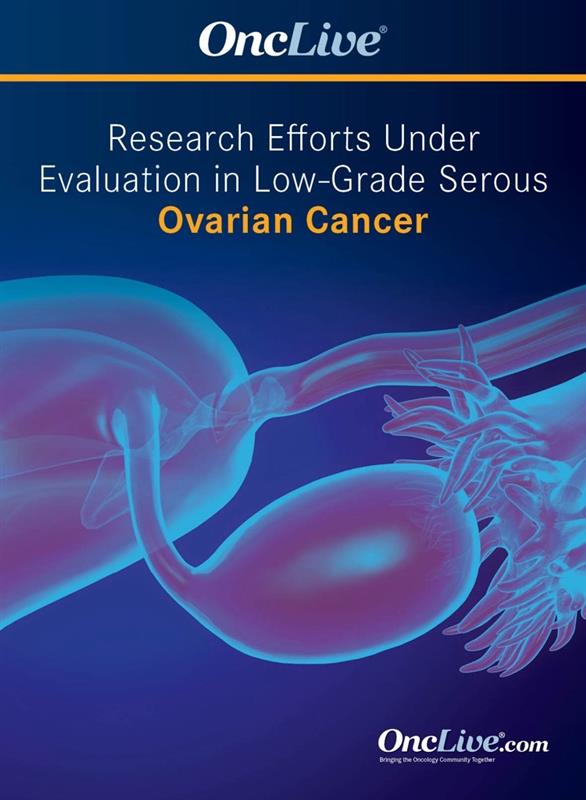Commentary
Video
Dr Thaker on the RAMP-301 Trial of Avutometinib/Defactinib in Low-Grade Serous Ovarian Cancer
Author(s):
Premal Thaker, MD, MS, discusses the phase 3 RAMP-301 trial of avutometinib plus defactinib in recurrent low-grade serous ovarian cancer.
Premal Thaker, MD, MS, surgeon, David G. and Lynn Mutch Professor of Obstetrics, director of gynecology, clinical research chief, Gynecological Oncology, Division of Gynecologic Oncology, Siteman Cancer Center, discusses the ongoing evaluation of avutometinib (VS-6766) plus defactinib (VS-6063) in the phase 3 RAMP 301 trial (NCT06072781) in patients with recurrent low-grade serous ovarian cancer (LGSOC).
The randomized, global, confirmatory phase 3 RAMP 301 trial is assessing the efficacy and safety of the RAF/MEK clamp avutometinib combined with the FAK inhibitor defactinib vs standard of care (SOC) chemotherapy and hormone therapy in this population, Thaker begins. Building upon previously reported results from the phase 2 RAMP 201 study (NCT04625270) and the investigator-initiated FRAME trial (NCT03875820), the RAMP 301 trial was required by the FDA for the combination to potentially receive full approval in recurrent LGSOC.
Approximately 270 patients with histologically confirmed low-grade serious ovarian, fallopian, or peritoneal cancer will be enrolled onto the trial. Patients will be randomly assigned 1:1 to receive either the combination of twice-weekly avutometinib and twice-daily defactinib for 21 days on, 7 days off in a 28-day cycle or physician's choice of SOC chemotherapy or hormone therapy, Thaker reports. Physician’s choice treatments included pegylated liposomal doxorubicin, paclitaxel, topotecan, letrozole, or anastrozole.
Patients will be stratified based on their KRAS mutation status, she continues, adding that patients are allowed to have previously received a MEK inhibitor as well as bevacizumab (Avastin). Notably, the study also allows patients who originally received a SOC treatment in the control arm to cross over to receive the investigational combination if they experience disease progression, Thaker emphasizes.
The study’s primary end point is progression-free survival (PFS). Key secondary end points include overall response rate, duration of response, disease control rate, safety, tolerability, patient reported outcomes, and overall survival. The trial is being conducted in the United States, with planned enrollment in Canada, the United Kingdom, Europe, Australia, and Korea, Thaker says.
On March 5, 2024, the FDA granted orphan drug designation to avutometinib alone or in combination with defactinib in recurrent LGSOC. There are plans to submit a rolling new drug application for accelerated FDA approval of the combination in 2024.








